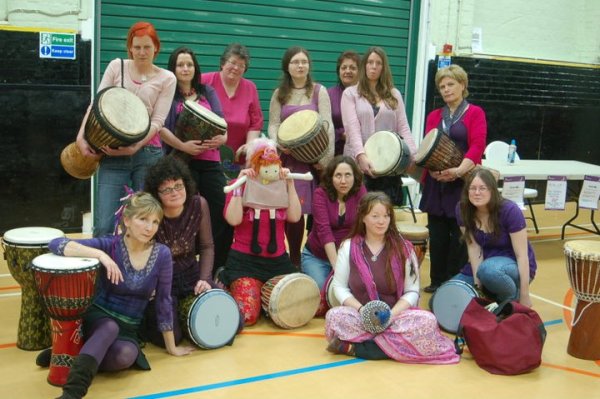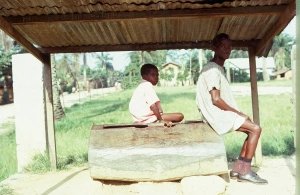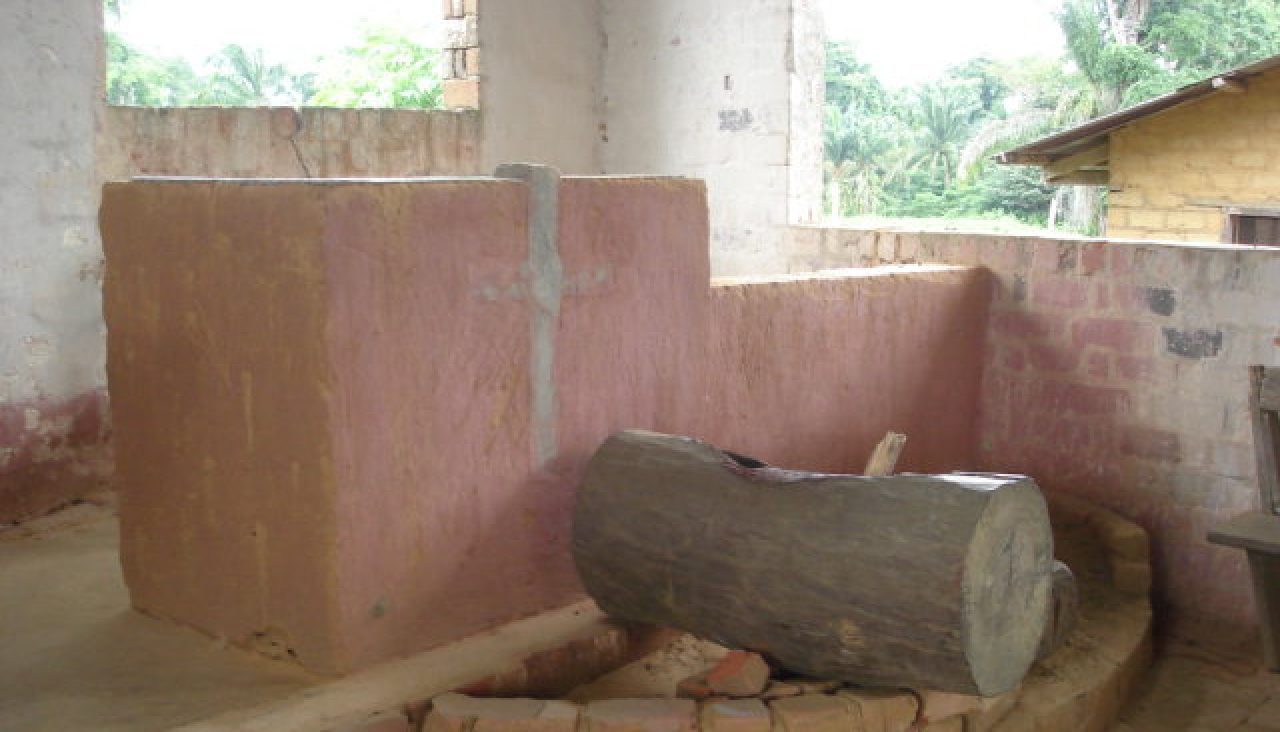
The pure, soaring melody of the “Banaha” song on the Missa Luba album (see the January 24, 2012 post of this blog) always uplifts. What a joy to learn from a Google search that the song is now sung by choirs internationally.
There is, however, considerable confusion about its origin so I’m dedicating this post to what I’ve learned about this Congolese folksong, a powerful expression of the joy of living. “Banaha” is described as a “soldiers’ song” on the liner notes of the original Missa Luba album. This could well be so as former Baptist missionary Edna Stucky, who grew up in Congo, explains:
“When we were young, growing up in Congo, we used to march along with the older boys who were probably in PE, marching all over Luebo station, singing those words to a tune that I know still, which is the Missa Luba one. May have had something to do with soldiers, since this was late 40s or so, and there were still Congolese soldiers from WWII around who were wearing those caps/hats/whatever you call them that were the head dress for infantry during the war. Always wondered how that kind of song got into Missa Luba! ”
“Banaha” becomes more perplexing when one tries to make sense of the words which are from the Kiluba language of southern Congo, Katanga provice. The agreed on, literal translation goes,
“At the foot of the pineapple tree,
Yaku ladles a banana into his aunt’s red hat.”
That Edna Stucky had no idea of the meaning of the words is not surprising as Kiluba is very different from the Tshiluba widely spoken in Luebo, Kasai, south central Congo, where she grew up.
I have never seen or heard of a “pineapple tree” growing in Congo or anywhere else but then “ladling a banana” is not something I’m familiar with either. Clearly, this ecstatic outburst in song is meant to transport the singer to a fanciful land where anything is possible, just the kind of song we all need from time to time.
For the musical notation (is that the correct term?) of the song, click on this link to the Illawarra (Australia) Union Singers’ song book:
And to hear the song’s rendition by the group of English women folksingers known as Djembabes, go to:
http://www.youtube.com/watch?v=uVgLN9_zByQ&feature=related
For the original Missa Luba version, and a guaranteed, instant pick me up it is, go to:
http://www.youtube.com/watch?v=vAk_4zmvRi8
Happy singing!


Have you ever thought about writing an e-book or guest authoring
on other sites? I have a blog based upon on the same
ideas you discuss and would really like to have you share some stories/information.
I know my audience would value your work. If you
are even remotely interested, feel free to shoot me
an email.
LikeLike
I am now blogging from Mexico at the address below. If you feel my writing on our learnings and experiences here would be of interest let me know. Your suggestions on particular topics are welcome as well. Reply to dougnslp@gmail.com
LikeLike
This is my first time pay a quick visit at here and i am in fact pleassant to read all at single place.
LikeLike
Glad you visited the blog site lokoleyacongo on wordpress.com. Please tell your friends about it!
LikeLike
Pretty nice post. I just stumbled upon your blog and wished to mention that I’ve truly loved surfing around your blog posts. In any case I’ll be subscribing for your feed and
I’m hoping you write once more very soon!
LikeLike
I’ve stopped posting anything new on lokoleyacongo. Everything new is written on erasingborders.wordpress.com from Mexicd. Thanks for your comment.
LikeLike
interesting
LikeLike
Pingback: “Hark the Welcome Angels sing…” | NEWS FROM CRYSTAL PALACE
So glad y
being alive that it conveys. ou found the “Banaha” posting helpful Katie. I’m not a musician or much of a singer but love the song and am always thrilled by the pure joy in
LikeLike
The translation is highly unlikely – that’s a lot of meaning to pack into six words (sisi, dolada, yaku, sine, ladu, banaha). Somebody probably just thought “banaha” = “banana” and “ladu” = “ladle” and made everything else up. It most likely doesn’t mean anything in any language – short jaunty tunes with lyrics that are nonsensical syllables are found in many musical traditions.
LikeLike
I’ve found that one of the joys of daily living in Congo is the jocular word play. The widely spoken “trade language” and formerly “official” language of the Army, Lingala, is a melange of words from a variety of Bantu and Euro-American languages and invites a creative, expressive and often very amusing joining and twisting of a multi-sourced vocabulary.
LikeLike
Pingback: Banaha - Congolese Children's Song - The Creative Choir Leader